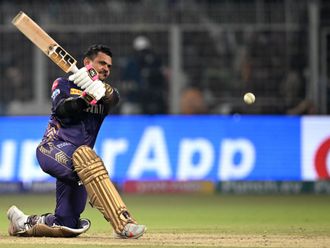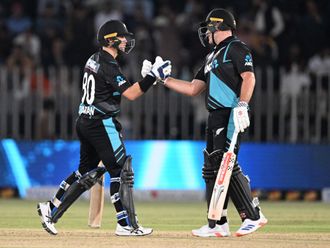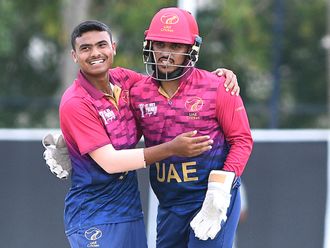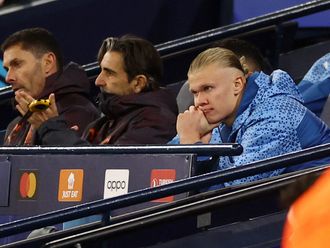The Emirates Cricket Board (ECB) has started to move in a professional way, and the formation of the ECB Domestic Cricket Development Committee (DCDC) is a great step in the right direction.
Cricket in the UAE needed to take a new direction, but unfortunately the ECB remained as a body merely to endorse activities by regional councils. Under these circumstances, the formation of the DCDC has injected life into a body that had remained idle for too long.
It is refreshing to note that Waleed Bukhatir, as chairman of the DCDC, has taken this initiative. It would be beneficial if he is able to carry on the legacy set by his father Abdul Rahman Bukhatir, who not only created stadiums to bring international cricket to UAE, but also played a pivotal role in raising the standard of the game here.
Cricket can progress in any country, but only if like-minded people with a genuine love for the game join forces. It is surprising that the ECB, until recently, had never organised a tournament directly under its banner.
Take, for example, India and Pakistan, two of the biggest cricket powers in the sub-continent. The Board of Control for Cricket in India (BCCI) organises the Ranji Trophy, while the Pakistan Cricket Board (PCB) stages the Quaid-e-Azam Trophy tournament. The UAE is yet to have any such tournament of repute.
Similarly, except for regional councils organising a few inter-school or inter-academy tournaments, the ECB is yet to stage a high-profile Under-19 or even an Under-15 tournament.
To progress in the game, every cricketer must have a goal, and that has to be set up by the highest cricket body. The DCDC decision to stage a high-profile tournament in each of the formats can go a long way and players can now aim to play in them.
Another important factor determining the success of a tournament is sponsorship support. There is no dearth of genuine lovers of the game here. Many top businessmen are keen followers of the game, but then they would expect mileage for their investment as well. A shrewd marketing committee with innovative ideas is a must.
Similarly, there should be committees formed for the development of grounds, umpires and even coaching, with the ECB directly monitoring activities of each committee.
Today, every cricket board in the world is run professionally. This game is no longer a mere sport, but a business too. Cricket is also not a part-time sport, but a career as well. And for players to consider it as a career and devote time to it, the highest cricket body in the country must also be run professionally.












